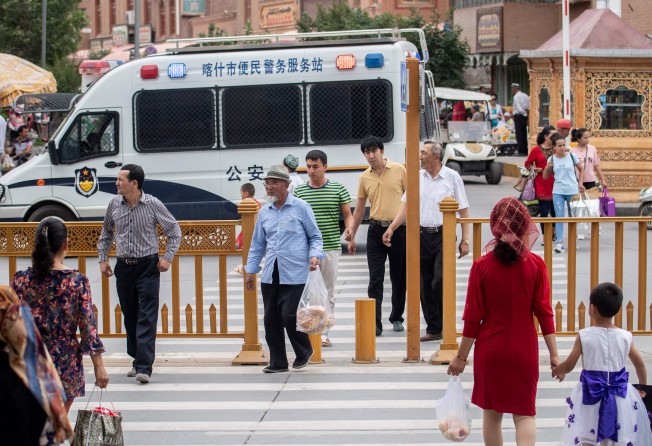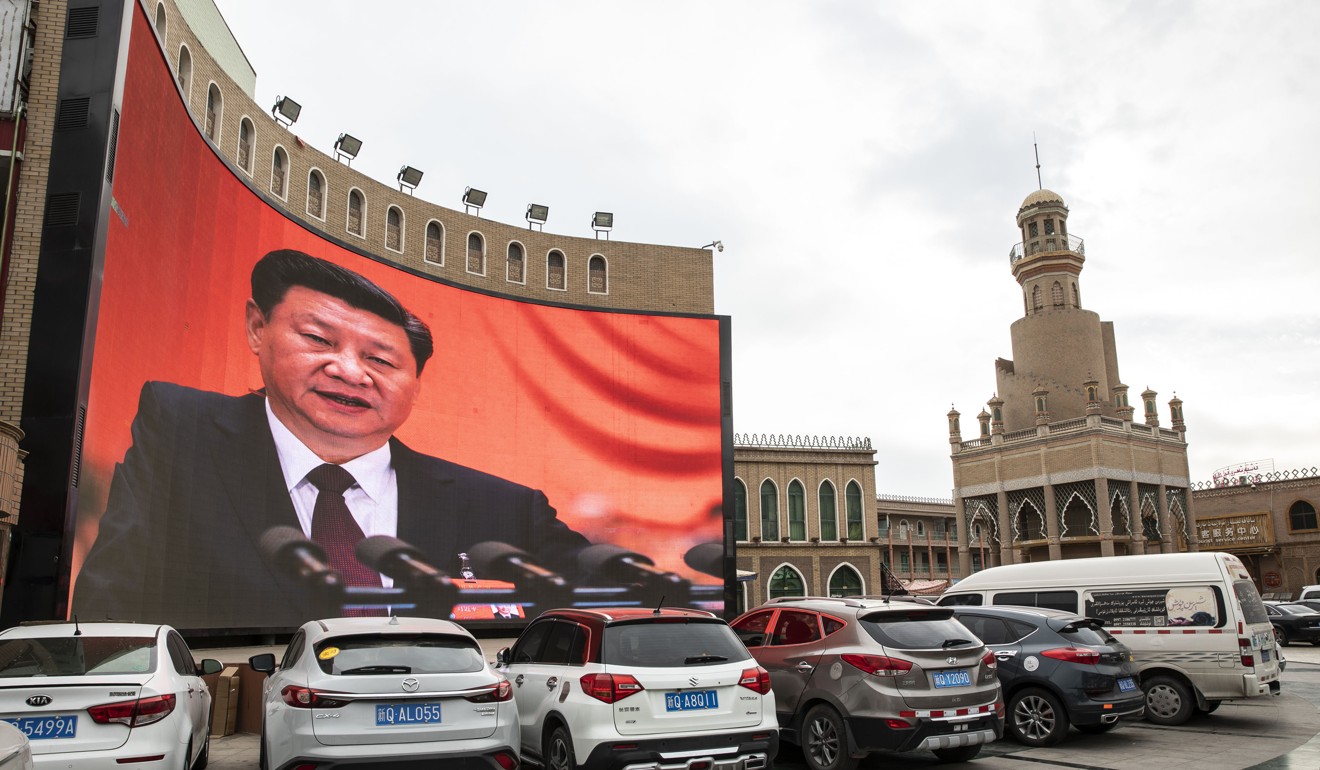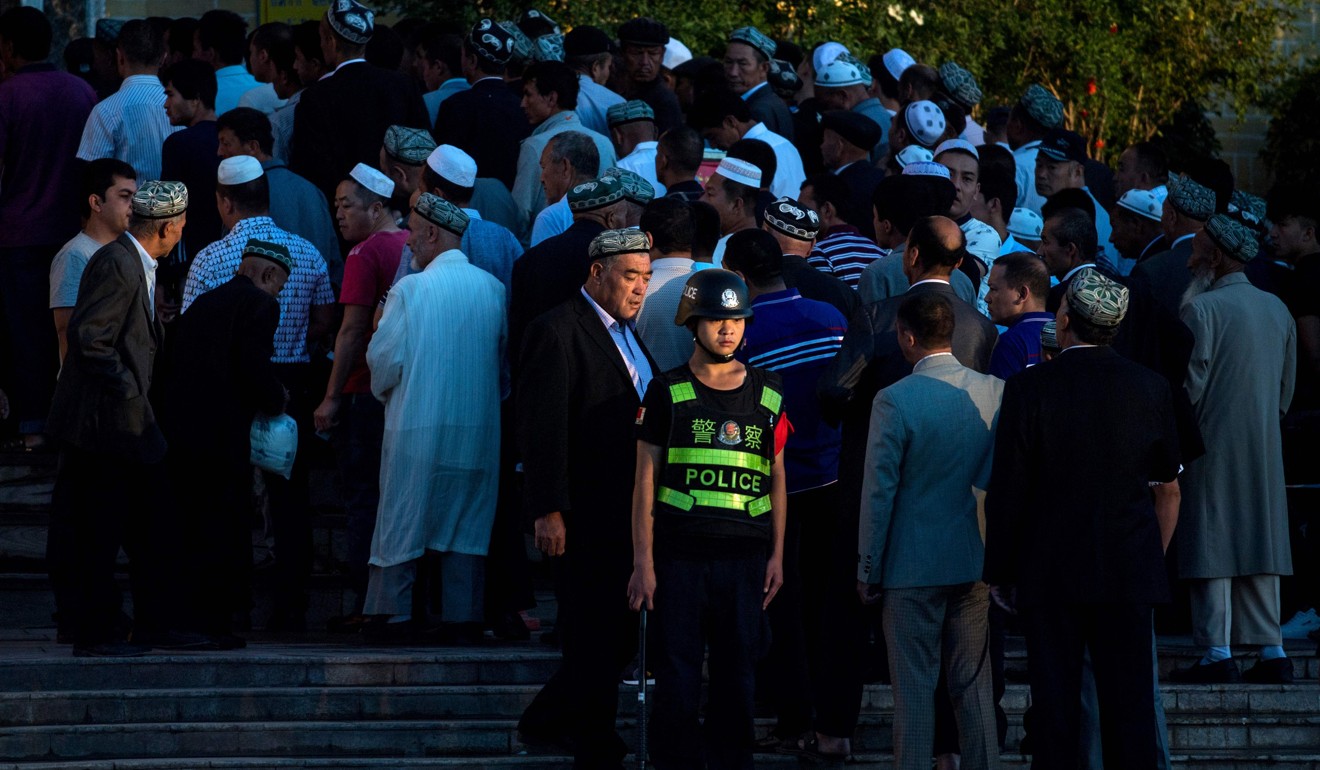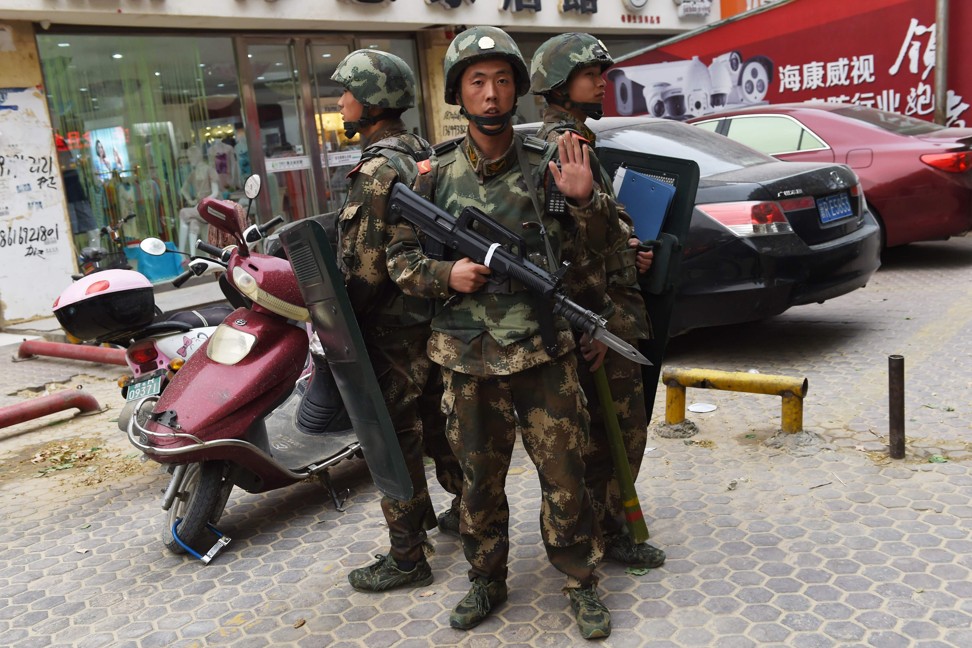Human Rights Watch decodes surveillance app used to classify people in China’s Xinjiang region
- Program analyses personal data collected by officials and decides if an individual should be put under closer observation
- Big data used to decide the 36 ‘person types’ of most interest to the authorities

A report by Human Rights Watch has revealed details of a mobile app being used by police and other authorities in China’s far west region of Xinjiang to identify target groups for enhanced surveillance and monitoring.
The document, released on Thursday, sheds light on the new technologies – from big data analysis to facial recognition and artificial intelligence – employed by China’s security agencies to build an extensive and advanced surveillance system for social control in the predominantly Muslim region.
The report said it provides “a detailed description and analysis of a mobile app that police and other officials use to communicate with the Integrated Joint Operations Platform (IJOP)”.
The program analyses information about local people collected by officials during home visits and on other occasions, and if an individual’s profile matches any of the 36 “person types” deemed to require closer observation, an alert is sent to the relevant authorities. Police can also be notified of any such “investigative missions”, the report said.
By reverse engineering the app, “we now know specifically the kinds of behaviours and people this mass surveillance system targets”, the group said.
Officials can use the app to record all sorts of information about people – from their ethnicity and religious beliefs to their height and blood type, the report said.
Individuals might also find themselves on a watch list if they collect money for their local mosque “with enthusiasm”, preach Islam without state authorisation, follow a blacklisted religious scholar, engage in Wahhabism – an ultraconservative branch of Islam – or go on the haj pilgrimage without permission, it said.
The app also raises a red flag when a person returns from overseas or is preparing to travel abroad, or if they conceal the fact they have a passport, the report said.
The authorities are also alerted if a person is released from a security-related detention, has a family member who has been “sentenced to death, was shot to death, or blew themselves up”, suddenly sells their belongings and moves for no apparent reason, stops using a smartphone and switches to an analogue phone, or “does not socialise with neighbours”.

“The Chinese government is monitoring every aspect of people’s lives in Xinjiang, picking out those it mistrusts and subjecting them to extra scrutiny,” said Maya Wang, a senior China researcher at Human Rights Watch.
“Foreign governments should recognise the need for export controls, targeted sanctions and stronger privacy protection to prevent Beijing’s appalling practices from becoming the world’s,” she said.
The group acknowledged that it still had only limited knowledge of the IJOP and was unaware if newer versions of the app had been introduced since it obtained a copy in February last year.
It said it had been unable to log in to the IJOP system because it did not have the necessary information.
“This limitation means that while we were able to recreate faithfully some of the pages and menus of the IJOP app, we were unable to do so for others. We also examined the app’s source code, which provided insights into many of the pages and functions we were unable to recreate,” a summary of the report said.
Repeated calls to China Electronics Technology Group Corp, which Human Rights Watch identified as the app’s developer, and the Xinjiang police department went unanswered. The Xinjiang government’s publicity department also did not respond to a fax request for comment.

The Xinjiang Uygur autonomous region has been mired in tension between members of the ethnic minority group from which it takes its name and China’s Han majority for many years.
A riot in 2009 in the regional capital Urumqi left 197 people dead, most of them Han, and was followed by a number of terror attacks in Xinjiang and other parts of the country over a period of years. Beijing blamed the violence on Uygur separatists and religious extremist groups such as the exiled East Turkestan Islamic Movement.
Western rights groups said the controls on Uygurs and other Turkic Muslims in Xinjiang had steadily increased in recent years, and especially since Chen Quanguo took over as Communist Party boss in 2016. According to some estimates, as many as 1 million people are currently being held in mass internment camps in the region.
The prominence of Islam-related items on the watch list and lack of direct references to separatist activities or groups suggest a shift of emphasis in the authorities’ surveillance efforts from known terror groups to religious extremists and suspects with overseas connections.
Darren Byler, from the University of Washington’s anthropology department, who has extensively researched the Uygur community, said the policing system in Xinjiang was “able to gain unprecedented levels of access to Uygur human behaviour” through its links to such a large and evolving collection of data, including biometrics.
Exiled group World Uygur Congress said the latest information of the policing programme reflected the result of Beijing’s increased security budgets.
“The Uygur people are being treated like lab animals to test and perfect technology that should make us all shudder at the thought,” the group’s spokesman Peter Irwin said.
“[The watch list] indicates that certain religious practices that were once legal may now be considered on par with separatism, however vaguely defined. Though more subtle in the past, China now draws a straight line from quotidian religious practices to extremism and even terrorism,” he said.
Adrian Zenz, an expert on China’s ethnic policy at the European School of Culture and Theology in Germany, said the system “reflects the practice of predictive policing”.
“The danger is that this causes racial bias or ethnic profiling. Existing bias is coded into the system and then projected onto the future. In Xinjiang, that is very much the case,” he said.
The system in Xinjiang could eventually be rolled out to other Chinese provinces that are home to large Muslim populations, like Gansu and Ningxia, he said.
“It is very likely that this system is being tested and refined in Xinjiang before finding deployment to other regions, in suitably adapted ways,” he said.
